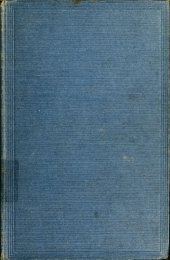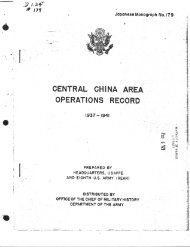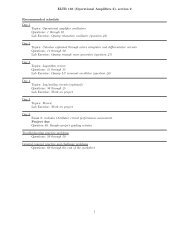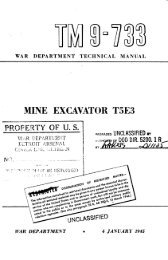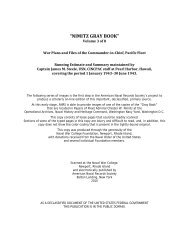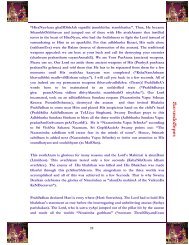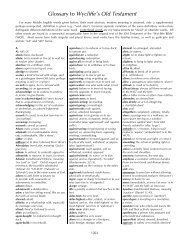Create successful ePaper yourself
Turn your PDF publications into a flip-book with our unique Google optimized e-Paper software.
epose. The daughter of Hunniades, first humbling herself before the altar of the Virgin, and offering her<br />
gratitude for all the late mercies vouchsafed unto her, and then bidding a word of peace to her host and<br />
her companion, withdrew to her hard-earned couch, soon was buried in a sleep as sweet and innocent as<br />
herself.<br />
13.6 But repose fell not upon the eye-lids of Nicæus in spite of all labours. The heart of the Athenian<br />
Prince was distracted by two most powerful of passions -- Love and Jealousy -- and when the Eremite,<br />
pointing out to his guest his allotted resting-place, himself retired to his regular and simple slumbers,<br />
Nicæus quitted the cavern, and standing upon the bank of the river, gazed in abstraction upon the rushing<br />
waters foaming in the moonlight. The Prince of Athens, with many admirable qualities, was one of those<br />
men who are influenced only by their passions, and who, in the affairs of life, are invariably guided by<br />
their imagination instead of their reason. At present all thought and feeling, all considerations, and all<br />
circumstances, merged in the overpowering love he entertained for Iduna, his determination to obtain her<br />
at all cost and peril, and his resolution that she should never again meet Iskander, except as the wife of<br />
Nicæus. Compared with this paramount object, the future seemed to vanish. The emancipation of his<br />
country, the welfare of his friend, even the maintenance of his holy creed, all those great and noble<br />
objects for which, under other circumstances, he would have been prepared to sacrifice his fortune and<br />
his life, no longer interested or influenced him; and while the legions of the Crescent were on the point of<br />
pouring into Greece to crush that patriotic and Christian cause over which Iskander and himself had so<br />
often mused, whose interests the disinterested absence of Iskander, occasioned solely by his devotion to<br />
Nicæus, had certainly endangered, and perhaps, could the events of the last few hours be known, even<br />
sacrificed, the Prince of Athens resolved, unless Iduna would consent to become his, at once to carry off<br />
the daughter of Hunniades to some distant country. Nor indeed, even with his easily excited vanity, was<br />
Nicæus sanguine of obtaining his purpose by less violent means. He was already a rejected suitor, and<br />
under circumstances which scarcely had left hope. Nothing but the sole credit of her chivalric rescue<br />
could perhaps have obtained for him the interest in the heart of Iduna which he coveted. For while this<br />
exploit proffered an irresistible claim to her deepest gratitude, it indicated also, on the part of her<br />
deliverer, the presence and possession of all those great qualities, the absence of which in the character<br />
and conduct of her suitor, Iduna had not, at a former period, endeavoured to conceal to be the principal<br />
came of his rejection. And now, by the unhappy course of circumstances, the very deed on which he<br />
counted, with sanguine hope, as the sure means of his success, seemed as it were to have placed him in<br />
a more inferior situation than before. The constant society of his mistress had fanned to all its former<br />
force and ardour, the flame which, apart from her, and hopeless, he had endeavoured to repress; while,<br />
on the other hand, he could not conceal from himself, that Iduna must feel that he had played in these<br />
rest proceeding but a secondary part; that all the genius and all the generosity of the exploit rested with<br />
Iskander, who, after having obtained her freedom by so much energy, peril, sagacity and skill, had<br />
secured it by a devoted courage which might shame all the knights of Christendom; perhaps, too, had<br />
secured it by his own life.<br />
13.7 What if Iskander were no more? It was a great contingency. The eternal servitude of Greece,<br />
and the shameful triumph of the Crescent, were involved, perhaps, in that single event. And could the<br />
possession of Iduna compensate for such disgrace and infamy? Let us not record the wild response of<br />
passion.<br />
13.8 It was midnight ere the restless Nicæus, more exhausted by his agitating reverie than by his<br />
previous exertions, returned into the cavern, and found refuge in sleep from all his disquietudes.<br />
29




